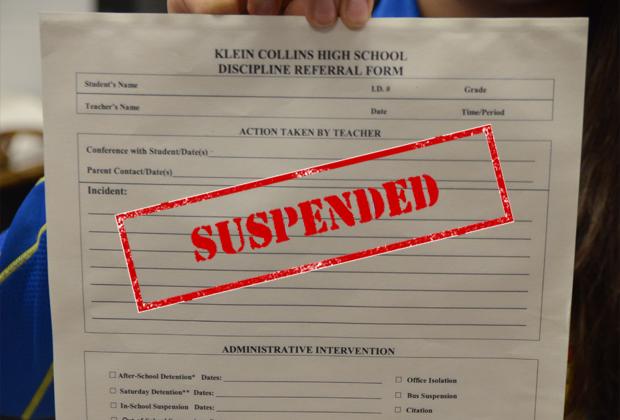Stuck in suspension
Students argue whether suspension is efficient or counterproductive
ASD. ISS. OSS. Saturday Detention. Alternative Education.
These are some of the consequences a student may receive as a punishment for behavior.
“Typically, the student code of conduct in the student handbook gives us a guideline, some are very specific and state exactly what the consequences will be,” Associate Principal Steve Matheson said. “We would prefer that no student ever had to be suspended but if they are punished, it is by their own actions.”
As negative as some students think suspension can be, others believe that it is something that could help certain students change their behavior.
“I think in general, school suspension helps students because they learn from their mistakes,” junior Ashley Fountain said. “But I also think that it takes a certain kind of person to change their ways, because bad seeds will always be bad seeds.”
Although some may believe that not all students can change their ways, one student, speaking from personal experience, believes that school suspension is something that can change all people.
“I feel that school suspension is extremely effective,” the student said. “During my suspension, I thought for a long time about my actions and decided to change my life and head towards a better direction.”
While some students were changed by suspension, others feel different methods of punishment can be more effective.
“I think the school should change the way they punish students,” junior Cornelius Harrison said. “I believe suspension is probably the worst way to discipline someone, because it really doesn’t help change their behavior, it’s just time-consuming.”
The school understands that students may have mixed feelings about school suspension, but in the long run, it will help them change their ways.
“From some students perspective it’s negative but from the school’s perspective it is positive in that we’ve eliminated a potential problem,” Matheson said. “The whole idea of suspension is that it serves as a deterrent so that students will think twice before they act.”








